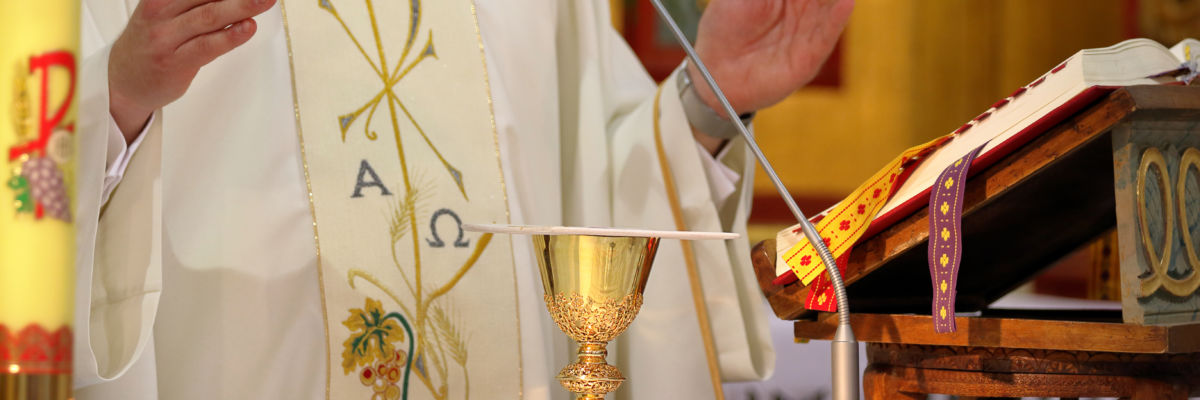
Catholic apologist Joe Heschmeyer joins Cy Kellett to tackle a common misunderstanding about St. Paul’s teaching in 1 Timothy 3:2 regarding bishops and marriage. Joe clarifies that Paul’s call for bishops to be “the husband of one wife” is not a mandate for marriage but rather a guideline against polygamy and divorce, emphasizing that celibacy can indeed be a valid and even superior path for church leaders.
Transcript:
Caller: So my question I’m asking kind of on behalf of somebody else. So it’s about the passage in First Timothy, chapter three, verse two. It’s about pastors and needing to be married, essentially. They’re essentially opposed to priestly celibacy.
Joe: Yeah. So when St. Paul says that a bishop must be above reproach, the husband of one wife, for basically 2,000 years, everyone understood that he’s saying not to be remarried, not to be a bigamist, or divorced and remarried. It’s a one wife ceiling. And then Protestants come along and say, no, no, it’s actually a floor. You have to have at least one wife. And it’s like, no, that’s clearly not what he’s saying.
The reason we know it’s not what he’s saying is Paul himself is celibate. Like Paul doesn’t have a wife. So unless he’s saying, oh, I could never be a bishop, I could never govern a church, but I can govern the people governing churches, it doesn’t make any sense.
So, like read First Corinthians 7 where he talks about how celibacy is superior to marriage and how he wishes everyone would copy him in being celibate, even though they’re not required to by God. Now that should be a huge glaring red flag that he’s clearly not saying celibacy is bad or celibacy disqualifies you from church leadership.
We also have, you know, the example of the other apostles. The apostle there’s sometimes dispute about is about Peter. But stop and think about the fact you don’t know the names of any wives of any apostles or any bishops in the early church. Even people who are bishops of local churches like Timothy and Titus, not a word is ever said about them having a wife.
Now that doesn’t prove not one of them did, but it’d be remarkable if literally all of them did and somehow none of their wives got mentioned when there are plenty of husband and wife pairs that are mentioned who aren’t bishops. So there’s early widespread evidence for celibacy being the normal practice within the church. It wasn’t dictated early on, but it was normative early on because Jesus in the Gospel of Matthew talks about how some are called to be eunuchs for the kingdom of God.
So both Jesus in Matthew 19 and St. Paul in First Corinthians 7 talk about how celibacy is even higher than marriage. I would also add even in terms of requiring celibacy in First Timothy 5. So you mentioned First Timothy 3. Sometimes people will combine that with First Timothy 4, where he warns against the Gnostics and talks about their doctrines of demons like the forbidding of marriage.
And they’ll claim that he’s talking about, oh, clerical celibacy is bad, or mandatory celibacy in particular context is bad. And then you get into literally the next chapter, First Corinthians 5, and he talks about how widows, if they want to be part of what’s called the ordo of widows, have to take a pledge to remain celibate after their spouse has died.
And so he says in First Corinthians 5, verse 11, but refuse to enroll younger widows, for when they grow wanton against Christ, they desire to marry. And so they incur condemnation for having violated their first pledge. So he’s clearly talking there about there being some widows who are enrolled. He’s not saying it’s wrong for all widows to remarry. That’s very clear.
But he is saying that widows who are part of this order where they were taken care of by the Church, if they desire to marry, that’s sinful against Christ. So even, like, obligatory mandatory celibacy is part of Paul’s scheme within the Church and in places like First Timothy.
So what would you say to all that?
Caller: : I think the response that, like, I was kind of trying to seal out, and one that I think some people would have, is if you look at the Greek there when he says they must be and then goes on with that list, that must there seems to be in the Greek. It seems to almost make it a mandatory thing.
Joe: Oh, yeah, no, I agree. Must be is mandatory. It is mandatory. Be above reproach. And if the husband of one wife means he literally can’t be a widower, or he literally… You know, if it would mean that, then sure, I would agree.
I think if you’re gonna make the argument from Greek, then the fact that the early Greek Christians didn’t read it that way should be a huge red flag. You know, like, if you were someone who didn’t speak English natively, or let’s say somebody else who doesn’t speak English natively is trying to say, oh, no, in English, this word actually means this other thing, you would say, like, you’re misreading the passage.
I speak English natively. There is an early work sometimes called the Constitutions of the Holy Apostles. And we were talking before the break when St. Timothy… Excuse me. When St. Paul says to St. Timothy that a bishop is to be the husband of one wife, Timothy himself doesn’t appear to be married.
Paul explicitly is not. Is he saying that he and Timothy aren’t qualified to be bishops? Is he? And I suggested the early Christians clearly didn’t understand it that way. They understood it to mean you have to be monogamous, as in you don’t have more than one wife, you can’t be a bigamist, you can’t be a polygamist, you can’t be an adulterer.
And you can find plenty of early Christians talking about this in places like Athenagoras in 180. But in the so-called Constitution of the Twelve Apostles, or Constitution of the Holy Apostles, excuse me, says we have already said that a bishop, a presbyter, a deacon, when they are constituted, must be once married or whether their wives be alive or whether they’d be dead, and that it is not lawful for them if they’re unmarried when they’re ordained to be married afterwards.
So right there it’s taking First Timothy 3 and saying this means either that you are unmarried upon ordination and therefore you’re prohibited from ever getting married, or if you are married and your wife dies, you’re prohibited from getting remarried. That’s how the early Christians understood. They didn’t think that this meant you couldn’t be unmarried and get ordained.
So it’s fascinating to see how a lot of modern Protestants have taken the passage in 180 degrees opposed from the way that the early Christians understood what St. Paul meant.
Again, Tyler, thank you for the call.
Cy: Let’s go to Jim in Washington State listening on Sacred Heart Radio. Glad to have you here. Jim, why aren’t you capping?



